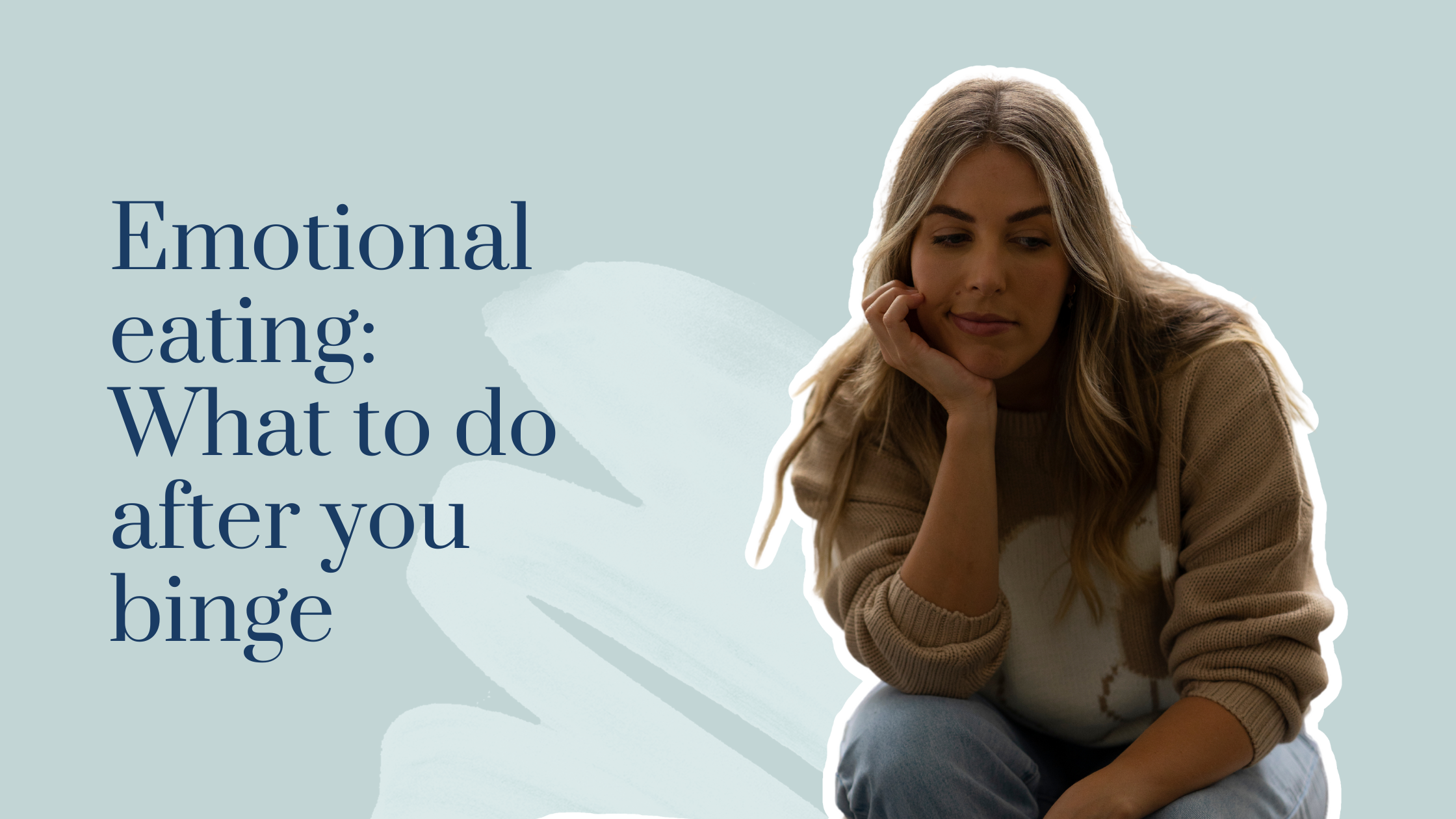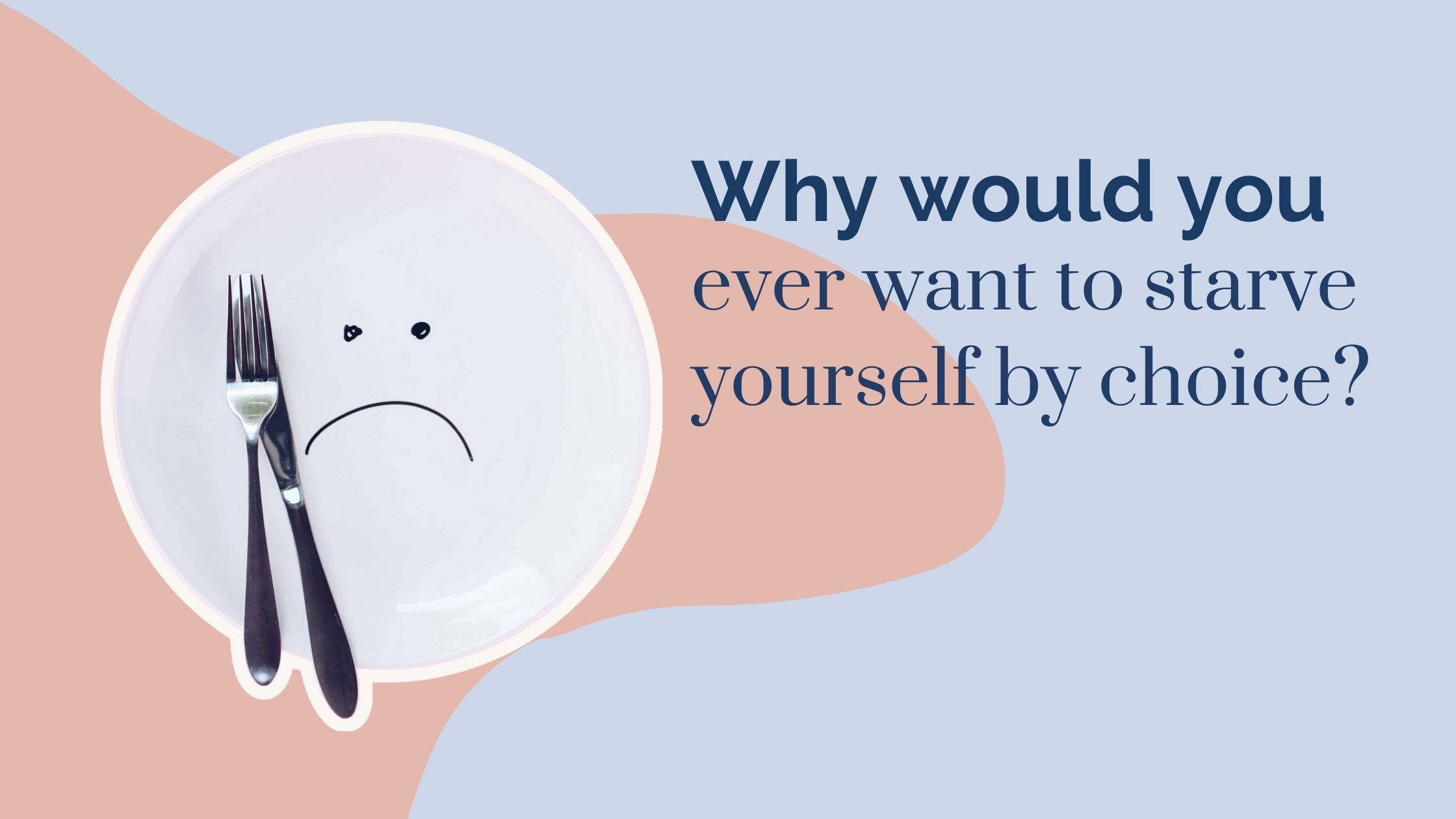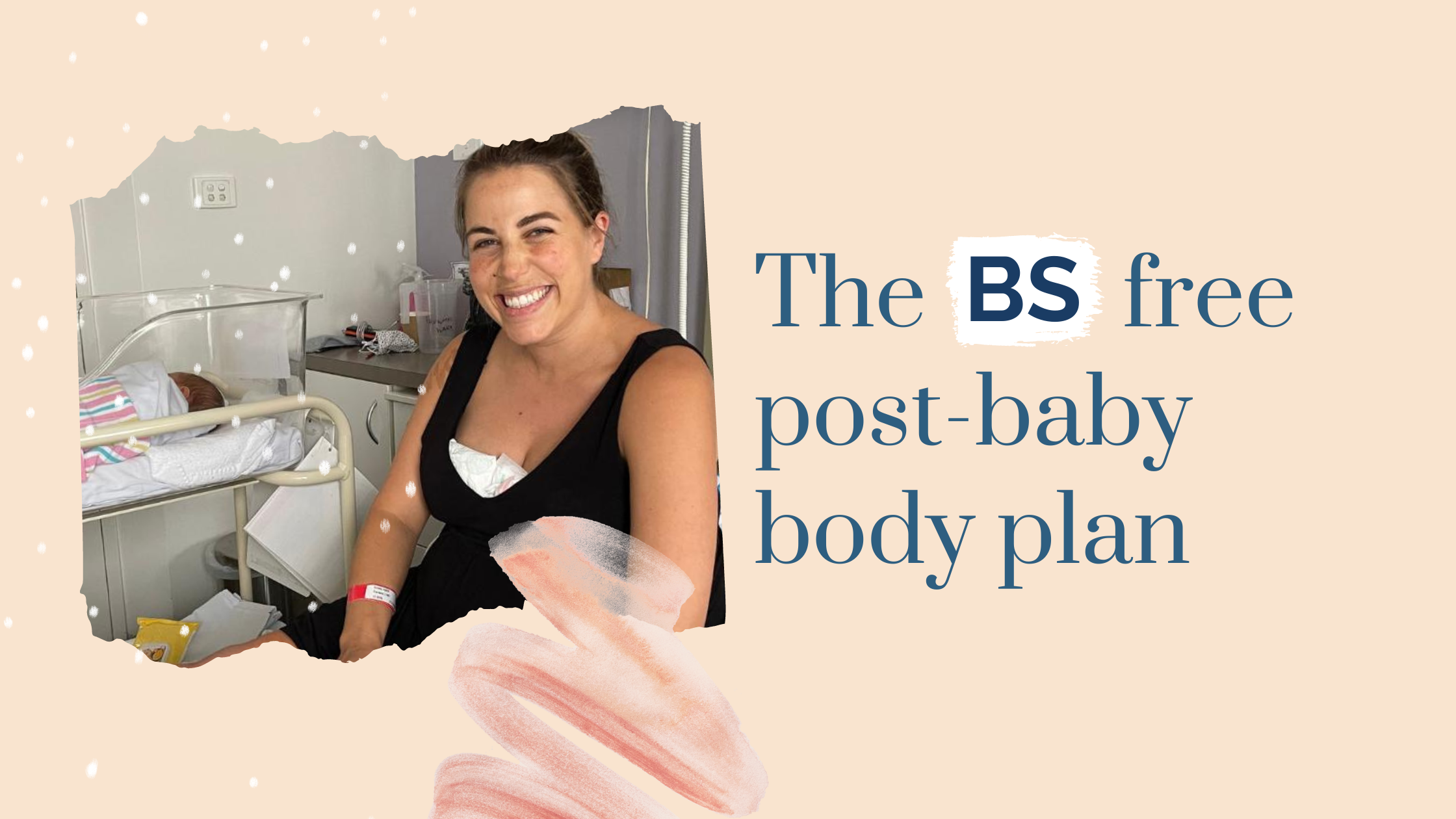Emotional eating: What to do after you binge…
As I’ve shared on my blog before, I used to have binge eating disorder and it controlled my life for about 10 years. After quitting diets and adopting a whole lot of patience and doing the work to understand my emotions, it’s no longer something that I struggle with (but don’t get me wrong – it took me a really long time).
During this time, one of the hardest things for me was bouncing back after I had a binge.
After raiding the entire kitchen and eating until I simply couldn’t consume any more, I’d inevitably be left feeling miserable, guilty and desperate. These feelings can set you up for another binge.
As part of my recovery, I came to realise is that how you bounce back after a binge is crucial… This week I received a lovely email from a reader who asked me for help on this specific topic. This made me realise that there must be heaps of people out there who don’t know what is the best way to recover from binge!
So here is the first step… How to bounce back after a binge.
Step 1. Break the Cycle
In case you didn’t know, there is something called the binge eating cycle. You can google image it for some pictures but here it goes like this:
1. You want to lose weight
2. You restrict what you eat
3. You binge eat
4. You feel fat and like a failure…
REPEAT the cycle…
And you REPEAT the cycle again and again and again and again and again and again….. etc.
So if you want to stop binge eating, then immediately after a binge – you need to break the cycle. And how do you do that?
Well, firstly you must resist the urge to restrict or diet. If you restrict or diet, the chances of you binging again are so much higher than if you just focus on listening to your hunger cues and eating normally.
It’s hard because the desire to want to lose weight can be so damn strong, but it’s so essential. I can’t stress this enough. To stop bingeing, you must stop dieting.

Step 2. Get Over The Guilt
So you binged… And now you’re feeling pretty crappy, right? I get it. I used to feel incredibly guilty after bingeing for having ‘ruined my diet’. I felt like a failure. I would spend all day counting calories and running for hours and then I would end up demolishing the kitchen. I would beat myself up for having fallen off the bandwagon – again! I had promised myself that this time would be different but it never was.
There is nothing like a binge to make you feel shame. The problem is that guilt and shame will only trigger you to continue along the binge eating cycle. If you want to break the cycle, then you need to be more accepting of yourself. Feeling guilty is a sure fire way to start the cycle again.
Try and distract yourself. Get busy and go see a friend. Write in a journal or do something creative like writing or painting. Don’t indulge in judging your body in front of the mirror. Don’t tell yourself you are fat and a failure. Just move on.
Step 3. Accept that you will binge again
Let me be very honest with you. I won’t sugar coat it.
During your recovery, you will binge plenty more times. Please do not expect that bingeing will one day just stop because you will be disappointed and feel like a failure when you’re don’t stop immediately.
Instead, what you’ll notice over time and with work is that binges will simply become less frequent. Maybe you eat a little less each time or they aren’t as long.
You must accept that you will binge again. And that is ok. What’s more, it is essential to binge. If you don’t binge, you can’t learn about how to stop bingeing! Consider each binge an opportunity to learn more about yourself, your emotions, your environment…
Try this. After a binge, tell yourself. “I binged and that is ok. It was just a binge. I am going to resist the urge to diet and restrict. I will keep listening to my body instead”.
I know what it’s like to struggle with food, binge eating and body image. Learn to listen to your body, give up diets by checking out my Keep it Real Program, which is filled with useful info on how to stop binge or emotional eating.

Step 4. Stop Relying On Willpower
I’ve written about how to stop relying on willpower and again here. Some other non-dieting dietitians might disagree with me, but I find this really worked for me. Stop relying on your willpower and remove the ‘sometimes’ treat and trigger food from your house.
By removing them from the house, it doesn’t mean that these foods are off limits to you. You can always go out and buy them, but removing them from your immediate environment means binging is a little less likely.
This isn’t always possible though. Sometimes we binge on everyday food like bread and cereal and leftovers and yoghurt. Or you live with other people* so you can’t explain why you can’t have this food around. If this isn’t possible, that is fine.
*chances are they have noticed that a lot of food has gone missing. It may not be a secret and worthwhile talking about.

Step 5. Seek Specialised Help
You may not be ready yet to admit to someone else that you have a binge eating problem. It took me 10 years to realise it and I was already in counselling the first time I ever blurted out the word binge!! And trust me, I blurted it out because it felt like the word didn’t belong to me.
I was so embarrassed. “What if people knew? What would they think”? I thought. And you know what I’ve learned? No one else actually gives a shit. Everyone is pretty caught up in their own lives to care. And if they have a problem – it’s their problem. You’re the one being courageous and they are the ones being judgemental and living small lives.
Anyways, in hindsight, getting professional help was one of the best thing I did for my recovery. It was the start of my recovery from emotional and binge eating. Sometimes you don’t feel ‘ready’ to get professional help but I’m not sure you’ll ever truly feel ready? So I encourage you to ‘BE BRAVE’ and take the leap, just like I did.

Step 6. Find the Right Professional
There are plenty of people who are specialised to help you.
1. Have a chat
I’d suggest getting in touch with a psychologist, psychiatrist or other mental health professional. The best person for the job is someone you can relate to and connect with. Remember, it’s just a chat with someone. It’s not scary and if you don’t like them, you don’t have to go back.
2. Pick a non-diet dietitian
I highly recommend seeing a dietitian who specialises in the non-dieting approach. I’m not taking on new clients but there are heaps of awesome experts out there who are. Get googling, speak to your GP and/or start asking around for the right help.
3. Look for a specialist
Find someone who specialises in eating disorders/binge eating and body image. Don’t just go to someone who does a bit of everything… Also, I personally wouldn’t trust someone who says they deal with binge eating but do not practice the non-dieting approach. They are probably people who think you just need ‘a bit more willpower’ to get over it. Ignore them and find someone who knows what the hell they are talking about.
I know what it’s like to struggle with food, binge eating and body image. Learn to listen to your body, give up diets by checking out my Keep it Real Program, which is filled with useful info on how to stop binge or emotional eating.





